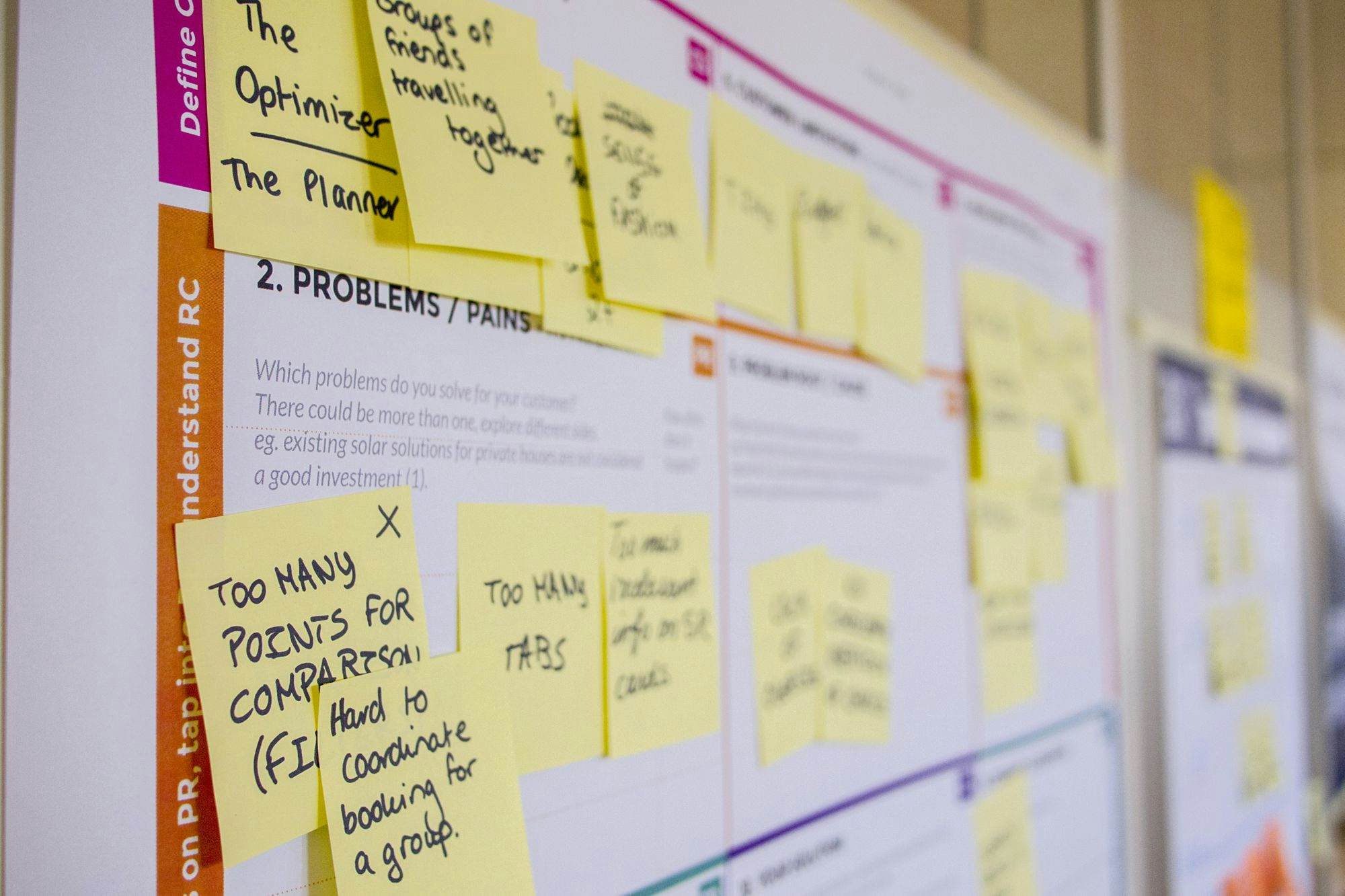Staying abreast of the best event tech is essential in our industry - in fact, 90% of eventprofs believe that technology has a major positive impact on how successful their events are. We've already covered the technology options and tools you'll need to organise a virtual event, as well as the challenges of planning hybrid events, but how do you know whether an all-in-one virtual event platform is going to best suit you, or whether you'd prefer an event technology stack instead?
In this piece, we'll explore the pros and cons of both, so you can learn a little more about each and make a balanced decision when it comes to your own virtual events. Whichever you choose, you're making steps in the right direction. Virtual & hybrid events have remained popular choices for events post-pandemic, with 34% of event organisers expecting to invest more in hybrid event platforms over the next few years.
Our Virtual Event Experts have spent hundreds of hours researching the latest virtual technologies and trends and supporting in the delivery of our clients' events. Chat to one of the team for further advice on what the best solution would be for you. Book a free consultation today.
Table of Contents
All-in-one Virtual Event Platforms
Virtual Technology Stack
The Solution
All-in-one virtual event platform
What is it?
An all-in-one virtual event platform (such as Arena) is an all-encompassing tool which offers everything you need to run a virtual event, in one place. You can plan, promote and measure the success of your virtual event all in one handy tool. Each tool has its own strengths and weaknesses, so it's worth investigating each option thoroughly to ensure it is suitable for your event and its objectives.
Pros of an all-in-one platform
- Ease. All the tech you might need is included in one platform, which may make it easier for you if you're just starting out organising virtual events, you're lacking in time or even if you just like everything the platform has to offer. It also means that your team will easily be able to learn how to use it, boosting efficiency and productivity and hopefully resulting in higher ROI.
- Time-efficient. You'll save time as you won't need to search for other tech tools you need, or spend valuable time in integrating the tools and making sure the attendee flow is smooth, thus increasing your productivity and allowing you to speed up the planning process.
- Integration. Depending on the platform, you may be able to integrate your virtual event platform with your CRM, allowing you to automate a lot of processes and save a lot of time and effort. The centralised system helps to streamline the event project, minimise risk of mistakes and removes the stress of integrating and testing multiple platforms. You can get visibility on budgets, attendance, feedback, leads and all sorts of data in the one dashboard, providing you with a simple way to provide tangible proof of ROI to your stakeholders, sponsors or clients.
- Customisation. Now, we're not saying that an event tech stack isn't brand-able, but when you're only dealing with one tech provider you can rest assured that every single aspect of your event will be branded and that the look and feel of your brand will be completely consistent from start to finish. For example, Arena, a new virtual events platform designed for event professionals is a fully customisable option that will create a professional and polished look.
Cons of an all-in-one platform
- One size doesn't fit all. As everything is included in one platform, you can't mix and match. You can choose not to use certain features, but it is harder to integrate external tech tools or ask the platform to tweak certain elements. That's why it's important to ask for a demo so that you can see all the features, get a feel for what they're like and decide whether they're going to be suitable for your virtual event. If you feel something's missing, keep searching!
- No backup. As much as it's easier to have one platform do all the work, it also means if something does go wrong, you don't have any other backups to step in. For example, if your platform's audience interaction functions suddenly stop working, or your live stream suddenly gets cut off, it's down to you and your platform to fix it. This could take time and may harm the user experience. Make sure you choose a reliable provider which has contingency plans and technicians in place for such issues and you always have a backup plan in place in case of critical issues.

Virtual event technology stack
What is it?
An event technology stack is when you use several different technology platforms or software options, and integrate them together to create your own virtual event solution, rather than using a platform that already has all the tools inbuilt.
Pros of an event technology stack
- Best of the best. An event tech stack can be a great option for selecting the best tools out there, choosing the tools that you think will work best for you and thus creating a completely bespoke event tech arsenal. With an all-in-one platform, you have to accept everything it has to offer, the good, bad and the ugly! With an event tech stack, you can fill any gaps the all-in-one platforms don't fill, thus creating a (hopefully) more rounded solution.
- Memorable user experience. Using the best tech providers on the market can really level up your virtual event and create an engaging and exciting experience for your attendees. For example, integrating concepts like VR, AR or other types of gamification can make all the difference to whether your virtual event is a success.
- Connecting your attendees. Following on from the user experience point above, we all know that now most of our events are virtual, the need for great networking opportunities has hugely increased. A benefit of using an event stack is that you can choose a fantastic tool specifically developed for virtual networking, rather than making do with the (sometimes below par) networking functionalities on an all-in-one platform. This will encourage your attendees to engage with each other (and your sponsors), increase their time spent at the event, make valuable connections and contribute to your event's success.
Cons of an event technology stack
- Keeping attendees happy. We've touched on user experience, and it's important not to underestimate the power of this. If people have a bad experience with your event, they're likely to not return, not use your brand, or worse, talk about how bad their experience was. If the flow of your event technology stack isn't completely seamless from registration to post-event, the user experience will be compromised and this will affect the success of your event.
- Nailing the integration. When your data is spread across different platforms and providers, it's important to make sure they are integrated properly so that your data synchronises and you don't lose any important information. If this does happen, you'll need to manually input or transfer data, which is extremely time-consuming, frustrating and error-prone. You could use an integration platform such as Zapier to help things run smoothly.
- Extra work. Above all, let's not forget that it takes a long time to find the perfect technology tool once you've done your research and had demos of the software. If you need to pick a tool for every single aspect of your virtual event, this could get pretty time-consuming and may delay you in actually getting round to organising your virtual event.

The Solution?
Ultimately, it's down to you! Your virtual and hybrid event objectives will be different to the next person's, so it's really about getting down to the core goals of your event and deciding which option is going to be the most suitable. Weigh up your options, consider your goals, and make an informed decision.
It's also important to bear in mind the type of event you're hosting, as some virtual event formats may suit different types of tech. For example, if you're organising a virtual conference, this may be well-suited to an all-in-one platform. If you're organising a more creative, immersive experience, an event stack may be better. For hybrid events, your requirements will be different again, as you'll need to able to integrate the virtual and in-person aspects, and allow attendees to network and participate through whichever platform or tech stack you choose. You can find more guidance on this in our blog on the technology you need to host hybrid events.
If you're still unsure what the best option might be for you, make sure to chat to on of our Virtual Event Experts, who have spent hundreds of hours researching the latest virtual technologies and trends and supporting in the delivery of our clients events. You could also check out our end-to-end service, Hire Space 360, which gives you unlimited access to world-class all-in-one and stackable event technology.
Book a consultation with one of our event experts
Find out how we can help to support you on your virtual and hybrid events
Book consultation
Author

Izzie Lachecki
Izzie brings a deep understanding of the events world to Hire Space, and keeps busy by writing lots of Hire Space and EventLAB content and managing the Hire Space social media presence.


